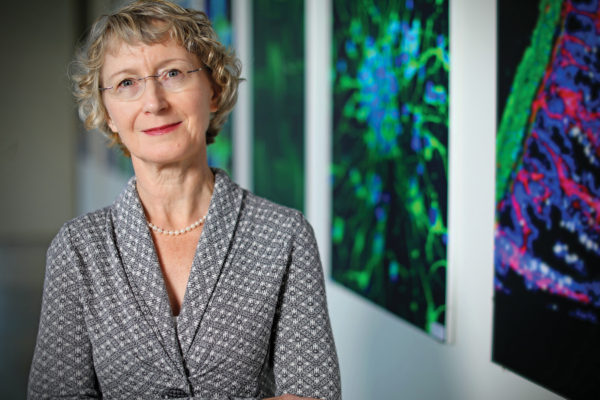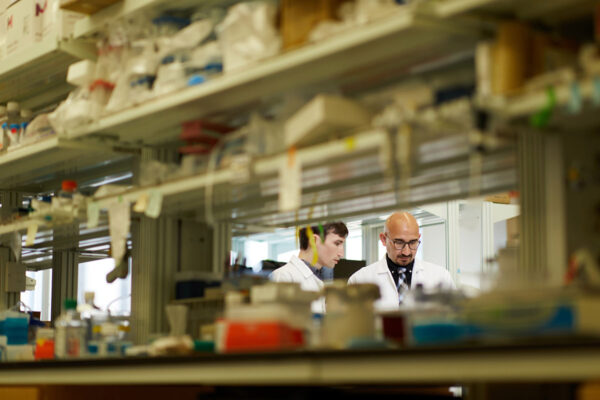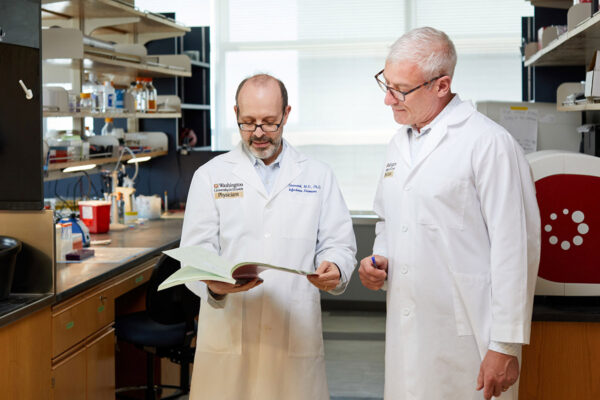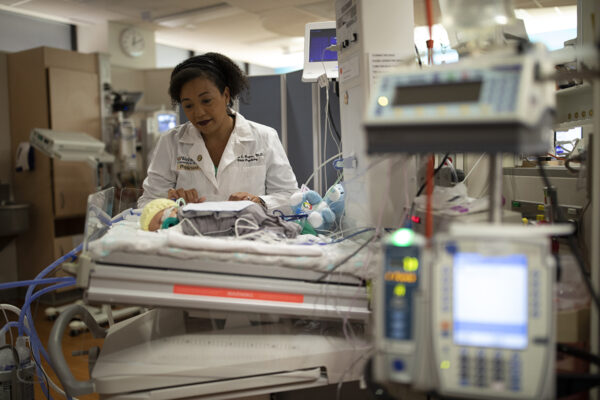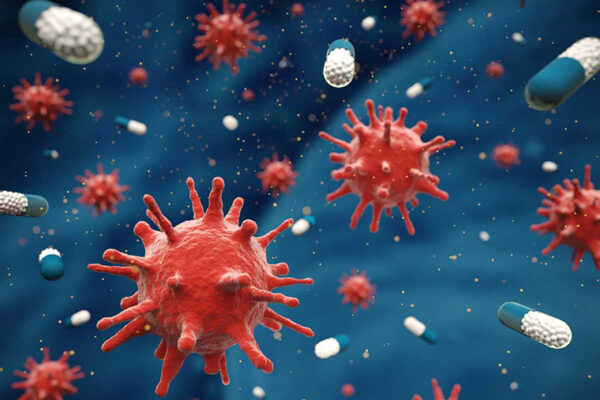Solnica-Krezel honored for contributions to developmental biology
Lilianna Solnica-Krezel, the Alan A. and Edith L. Wolff Distinguished Professor and head of the Department of Developmental Biology at the School of Medicine, is to receive the 2023 Edwin G. Conklin Medal from the Society for Developmental Biology.
Keeping COVID-19 in check likely to require periodic boosters
Vaccinating people with updated boosters as new variants of the virus that causes COVID-19 emerge could shore up population immunity even as the virus mutates, according to School of Medicine research. Such action could prevent another deadly COVID-19 wave.
Small proteins in heart play big role
Two researchers at Washington University in St. Louis took a closer look at the signals that coordinate a heartbeat at the molecular level. What they found may provide new insights into different heart conditions and how to develop better therapies.
Scientists aim to develop vaccine against all deadly coronaviruses
School of Medicine scientists are working to minimize the risk of another devastating coronavirus pandemic by designing a vaccine that reduces sickness and death caused by all potentially deadly coronaviruses, including ones that have not yet affected people. The research is supported by an $8 million grant from the National Institutes of Health (NIH).
Rogers, Smyser awarded MERIT grant for research on preterm babies
The School of Medicine’s Cynthia Rogers, MD, and co-investigator Christopher Smyser, MD, have received a MERIT award from the National Institutes of Health (NIH) to support their research focused on preterm babies’ brains as the children age.
Four Washington University faculty named AIMBE Fellows
Four Washington University in St. Louis faculty members have been named Fellows of the American Institute for Medical and Biological Engineering: Hongyu An, Elliot Elson, Srikanth Singamaneni and Jessica Wagenseil.
Mitreva elected to American Academy of Microbiology
Makedonka Mitreva, a professor of medicine and of genetics at the School of Medicine, has been elected to the American Academy of Microbiology in recognition of her contributions to the field of microbiology.
Paxlovid reduces risk of long-term health problems, death from COVID-19
People infected with COVID-19 who then took the antiviral medication Paxlovid within five days after testing positive experienced a reduced risk of long-term health problems, hospitalization and death for up to six months, according to a study by researchers at the School of Medicine and the Veterans Affairs St. Louis Health Care system.
Multiple substance use disorders may share inherited genetic signature
New research led by Washington University researchers identifies a common genetic signature that may increase a person’s risk of developing substance use disorders. The work eventually could lead to universal therapies to treat multiple substance use disorders and potentially help people diagnosed with more than one.
American Society for Clinical Investigation honors physician-scientists
Three early-career scientists who have conducted their research at Washington University School of Medicine in St. Louis have been honored with the Young Physician-Scientist Award by the American Society for Clinical Investigation (ASCI).
Older Stories
